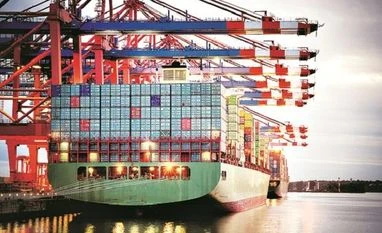In an age of global value chains, increasing tariffs and staying out of trade agreements only disadvantage Indian exporters, depress export potential, and lower growth. It is obvious that a country that shifts its trade policy arbitrarily, or shows itself vulnerable to sudden tariff impositions, thanks to domestic lobbying, will not be able to embed itself in such value chains. A protectionist policy and the associated uncertainty in tariff rates are likely to discourage foreign companies from establishing part of their manufacturing chains in India. Such decisions also end up hurting Indian industry because tariff increases in any one industry can often affect user firms in another industry, and invite retaliatory action from trading partners.
Worse, this attitude of the government has been combined with an unfortunate air of hostility to foreign investors. While the prime minister himself cannot be faulted for any lack of energy in selling the India story, the rest of the government has not worked together to follow up on this narrative. Loss-making foreign-owned e-commerce companies were recently termed “predatory”. This negative attitude to investment in e-commerce risks forgoing the logistics infrastructure and job creation such investment enables. The government has said on several occasions that it is always trying to make India more investment-friendly and has noted its attempts to ease regulations, improve governance, and showcase infrastructure projects worldwide. Yet it is clear that regulations which are changed after investments have been made are hardly likely to give the impression that India is investment-friendly.
Overall, it is clear that the government will have to speedily change track if India is to recover from the prolonged slowdown it is going through. This slowdown was driven originally by low private investment and proximately by a collapse in demand. The only solution to either problem that has any hope of permanence or sustainability is greater openness — tapping global markets for both capital and goods. Protectionism such as the government seems to have now openly espoused will drive the India story backward, not forward. Instead of giving in to such lobbies, policy-makers should focus on creating conditions that prompt domestic firms across industries to become globally competitive. The Union Budget is a good opportunity to reverse this protectionist momentum.
To read the full story, Subscribe Now at just Rs 249 a month
Already a subscriber? Log in
Subscribe To BS Premium
₹249
Renews automatically
₹1699₹1999
Opt for auto renewal and save Rs. 300 Renews automatically
₹1999
What you get on BS Premium?
-
Unlock 30+ premium stories daily hand-picked by our editors, across devices on browser and app.
-
Pick your 5 favourite companies, get a daily email with all news updates on them.
Full access to our intuitive epaper - clip, save, share articles from any device; newspaper archives from 2006.
Preferential invites to Business Standard events.
Curated newsletters on markets, personal finance, policy & politics, start-ups, technology, and more.
Need More Information - write to us at assist@bsmail.in
)